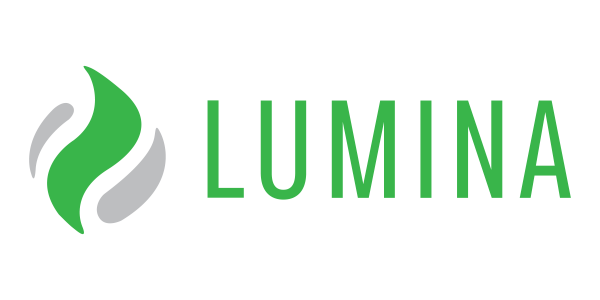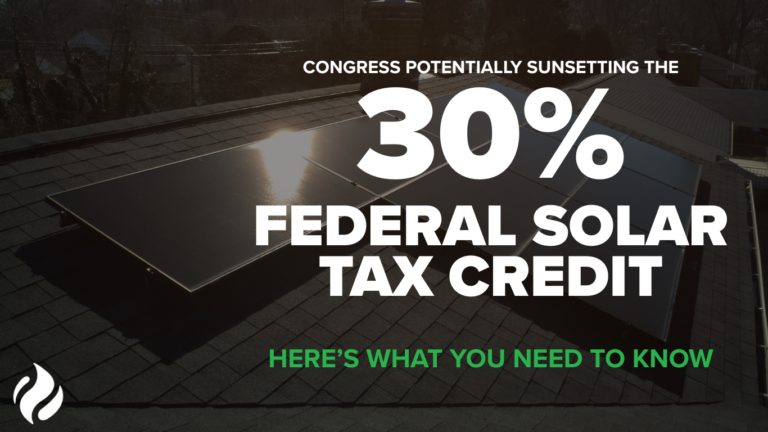Occupational Hazards Of Solar Panel Installation: Potential Risks Involved In Setting Up Photovoltaic Modules Play A Significant Role In The Overall Efficacy Of Solar Panels
Potential Physical Injuries during Installation
While the solar energy revolution has been a boon for the environment, those who toil to install these shimmering panels deal with perilous situations daily. Have you ever thought about the risks they face?
Falls from Height
Picture this: an installer is perched high on a sloping rooftop, securing a panel. Suddenly, they lose their footing. A fall from such a height is one of the most common causes of serious injury in this field. Can you imagine the severity of the impact?
Electrical Shocks
Consider the risk of electrical shocks. Solar panels are, after all, electrical devices. A wrong move could lead to an electrical shock, causing burns or even cardiac arrest. It’s a stark reminder of the hidden dangers within the promise of clean energy.
Heat-Related Illness
On top of that, installers often work under the blazing sun. The risk of heatstroke and other heat-related illnesses is all too real. It’s like dancing with the sun, isn’t it?
- Falls from height – can lead to serious injuries or even death
- Electrical shocks – can cause burns or cardiac arrest
- Heat-related illnesses – can result in severe health complications
From this perspective, the job of a solar panel installer can feel more like a tightrope walk. But remember, as with all walks of life, the key is to be aware, stay prepared, and always respect the power of nature and technology. Stay safe up there!
Electrical Hazards Associated with Solar Panels
Ever heard of the phrase, “A spark can start a fire”? This is particularly true in the world of solar panels. These eco-friendly powerhouses are not without their risks, specifically electrical ones.
Electric Shock and Electrocution
Did you know that solar panels continue to generate electricity as long as there’s light? Even a small amount of light can generate a high voltage that can lead to electric shock or electrocution. It’s like a snake in the grass, always ready to strike.
Fire Hazards
Imagine this: a hot, sunny day and a solar panel setup on your rooftop. It’s a perfect picture unless something goes wrong. Incorrect installation can lead to overheated components, sparking a fire. While rare, such incidents are a stark reminder of the dangers lurking in the shadows of the bright solar energy field.
Addressing the Risks
- Proper Installation: Ensuring correct installation can help avoid dangerous situations. It’s like following the recipe to the letter when baking a cake. Miss a step, and the result can be disastrous.
- Regular Maintenance: Like a car needs regular servicing, solar panels require maintenance to function optimally and safely.
- Professional Assessment: Periodic checks by professionals can identify potential issues before they escalate. It’s like going for a regular health check-up.
So, while the benefits of solar panels are undeniable, it’s essential to understand and address the associated risks. It’s like enjoying the sun but remembering to put on sunscreen. Safety, after all, should never be compromised, right?
Exposure to Harmful Materials in Solar Panels
Working in the solar industry isn’t all sunshine and rainbows. It comes with its own set of unique risks. One such risk is the potential exposure to harmful materials used in the production of solar panels. Before we dive into this, let’s ask ourselves, what makes these materials hazardous?
Hazardous Materials in Solar Panel Manufacturing
Solar panels are made up of several components, each having the potential to harbor hazardous materials. One such component is the solar cells themselves, often composed of silicon and cadmium telluride. Cadmium is a known carcinogen, posing a serious health risk to those who are exposed to it regularly. Makes you think, doesn’t it?
Exposure Risks
The risks are not confined to the production line, but extend to the installation and disposal of solar panels. When panels are damaged or improperly handled, harmful substances can be released into the air or soil. Consequently, professionals in the field must be vigilant and adhere to safety standards to mitigate these risks.
Risk Mitigation
- Proper training on handling of solar panels
- Use of personal protective equipment
- Proper disposal methods for damaged or obsolete panels
While the solar industry has its unique safety considerations, it’s crucial to remember that these hazards are manageable with proper understanding and precautions. So, when considering a career in solar, don’t let the potential exposure to harmful materials deter you. Instead, arm yourself with knowledge and stay safe.
Risk of Falls during Solar Panel Installation
One of the most significant threats faced by solar panel installers is the risk of falls. This hazard isn’t unique to the solar industry; workers in many professions grapple with the dangers of working at high altitudes. But, when you’re balancing on a roof with a heavy solar panel in your hands, the stakes are considerably higher. So, how do installers manage this?
Preventative Measures
First, it’s about preparation. Installers get trained to work at heights, learning about safety equipment like harnesses, lanyards, and anchors. But, is this enough to keep someone safe?
- Safety Equipment: The use of Personal Protective Equipment (PPE) is non-negotiable. It’s not just about having the right gear; it’s about using it correctly.
- Training: A well-trained installer is a safe installer. They understand their equipment, know their limits, and are aware of how to react in an emergency.
The Unpredictable Factor
Even with the best preparation, there’s always the unpredictable factor – the human one. Stress, fatigue, or simple distraction can lead to a slip, a trip, or a fall. So, what’s the solution?
Creating a culture of safety is paramount. It’s about more than just rules and regulations; it’s about ensuring every team member understands the importance of their safety and the safety of their colleagues. After all, isn’t a safe work environment everyone’s responsibility?
Preventive Measures and Safety Equipment
Working on solar panel installation, one is exposed to a variety of unique, shall we say, predicaments. Ever been a thousand feet up in the air, straddling a piece of metal while the sun blazes down? That’s an everyday reality for solar panel installers. How about the risk of electric shocks? Sounds scary, doesn’t it? But what if there were ways to minimize these risks?
Preventive Measures
First, let’s consider preventive measures. How about taking a leaf out of the book of Occupational Safety and Health? Regular training sessions can be a game changer, enhancing workers’ awareness about potential risks and how to avoid them. Think about it: wouldn’t you rather be prepared than deal with the aftermath?
- Regular drills to simulate potential situations
- Training on the proper usage of equipment
- Workshops on emergency response strategies
Safety Equipment
Next, let’s discuss safety equipment. We’re talking helmets, harnesses, gloves, the works. Investing in high-quality safety gear is crucial, period. It’s not just about meeting regulatory standards, but about ensuring the well-being of the crew.
- Insulated gloves to protect against electric shocks
- Harnesses for secure positioning during high-altitude work
- Helmets to shield against falling objects
In the solar panel installation industry, it’s not enough to just hope for the best. You need to prepare for the worst and arm yourself with every possible precaution. After all, isn’t it better to be safe than sorry?
Occupational Hazards Of Solar Panel Installation
Pronunciation: ˌä-kyə-ˈpā-shnəl ˈha-zərds əv ˈsō-lər ˈpa-nəl ˌin-stə-ˈlā-shən
Definition
Occupational hazards of solar panel installation refer to the potential risks or dangers that are associated with the profession of installing solar panels. These hazards may include but are not limited to physical injuries due to falls or electrical shocks, exposure to harmful substances, and heat-related illnesses.
Details
Solar panel installers work at height, handle complex electrical components, and are often exposed to the elements. This can lead to a variety of occupational hazards, including:
- Falls: Falling from roofs or ladders is one of the most common hazards. Proper use of safety equipment and adherence to safety protocols can minimize this risk.
- Electrical hazards: Installers work with electrical equipment that can cause shocks or burns if mishandled. Proper training and safety measures can help to prevent these incidents.
- Exposure to harmful substances: Some solar panels contain harmful substances like lead or cadmium. Ingesting or inhaling these substances can lead to health issues.
- Heat-related illnesses: Working in high temperatures can lead to heat stroke or heat exhaustion. It’s important for installers to stay hydrated and take regular breaks.
For more information about Occupational Hazards Of Solar Panel Installation contact Lumina Solar today.
Useful Links
Parallel Circuits, Diode, Automobile Auxiliary Power Outlet, Usb, Solar Cell Efficiency, Electromagnetic Spectrum, Ultraviolet, Infrared, Monochromatic, Irradiance, W/M2, Spectrum, Airmass, Solar Irradiance, Soiling (Solar Energy), Open-Circuit Voltage, Short-Circuit Current, Watt-Peak, Voltmeter, Potential-Induced Degradation, Boron, Photovoltaic Mounting System, Solar Power Plant, Agrivoltaics, Bifacial Solar Cells, Solar Canopy, Solar Array, Patio Cover, Zenith Angle, Azimuth Angle, Occupational Hazards Of Solar Panel Installation, Cadmium Telluride, Gigawatt, Gigawatt, Experience Curve Effects, Photovoltaics, Grid Parity, Mains Electricity, Balance Of System, Solar Energy, Applications Of Photovoltaics, List Of Solar-Powered Products, Photovoltaic Power Station, Solar Hybrid Power Systems, Concentrated Photovoltaics


